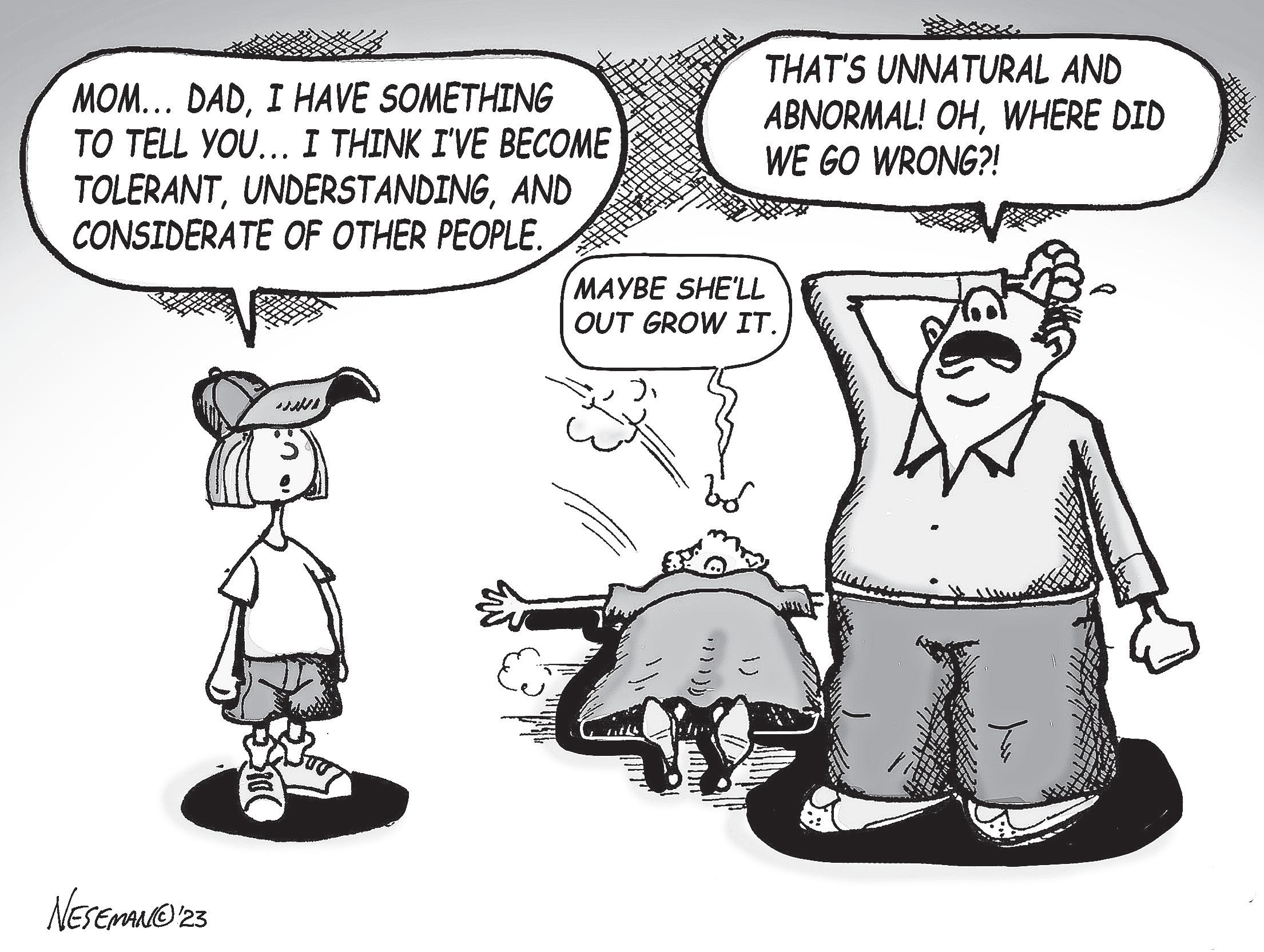
3 minute read
Don’t let our map of history disappear
“History is not the past, but a map of the past,” historian Henry Glassie once said, “drawn from a particular point of view, to be useful to the modern traveler.”
Herald
We explore that map through collections of stories, drawings and photographs. Later, through moving images and even elaborate recreations on the silver screen. Yet no matter how advanced our mapmaking skills of history have become, there is not a single plot point or directional as effective in truly connecting us with history than directly interacting with those who were there.
That’s why we are so grateful for efforts like the UJA-Federation’s Witness Project. Similar to other efforts with variations on the same name, the UJA started the Witness Project five years ago, as an effort to tell stories from the Holocaust and World War II directly from the source: those who witnessed it.
As part of a recent featured exhibit and film, “The Ties that Bind Us,” at the Tilles Center for the Performing Arts, the Witness Project showcased its efforts to tell stories directly to high school students in twice-monthly small group meetings where each has a chance to interact with
Support the W.H. school budget in Tuesday’s revote
To the Editor:
During the waning days of the last century, what now seems like eons ago, I beckoned my fellow West Hempsteaders to come home. In the course of civic endeavors, I encouraged my neighbors to come home to a community whose “values are textured with the broad-brush strokes of compassion, decency, and the fundamental belief that we must be free to make the difficult choices which will shape our future.”
Prophetically, perhaps, I also urged West Hempsteaders to come home “to a community supportive of public education, and the ideals upon which the education of our children are founded. If, in fact, ‘a child shall lead them,’ then we must do everything within our power to make sure that we prepare our children for the challenges of a new century.”
Nothing defines a community as much as the success, or failure, of its public schools. And today, some 27 years after I first penned those words, the clarion call of community goes out yet again. A call to come home to that small town with the big heart, where we stand up, speak out, involve ourselves, and are counted, in the meaningful and necessary endeavor of bringing out the best in our community.
Next Tuesday, the revote of our school budget will take place, from 7 a.m. to 9 p.m., Secondary someone who experienced the horrors of the genocide, and later the triumphs of the period when it ended.
One of the witnesses who took part in the project is Fred Zeilberger, who was ordered to stack bodies of fellow prisoners like firewood at a makeshift concentration camp in Latvia. He was just 14, and was one of just 27 Jewish prisoners to survive that camp, out of 1,000 who ultimately ended up there.
“I was working every day,” Zeilberger recounted. “If you didn’t work, you didn’t survive.”
Some might question why we, as a society, spend so much time focused on history, when we have the present — and the future — to deal with. But that’s the thing. You can’t understand the present or prepare for the future without exploring the past. That means the bad, the good. The horrific, the triumphant. There is no room for filters, only for an honest assessment of what we, as a society, have cobbled together over the years, decades and centuries.
And yes, a lot of our history will make us quite disappointed in our ancestors. We may even feel terrible about what happened, even though we personally did not do any of those things.
No one, of course, wants to feel bad. But a little bit of guilt is far different than the pain and suffering so many others experienced before us. And if feeling bad helps us better understand the plight of those who came before us, it’s a small price to pay.
It’s an oft-repeated quote, so often that it could be argued that it’s cliché. But George Santayana was right: “Those who cannot remember the past are condemned to repeat it.” Remembering the past might not ensure that it won’t be repeated, but it’s the best defense we have for breaking the cycles of pain and anguish that fill our history books.
Our darkest period in modern history is, by far, the Holocaust. Every story from this time couldn’t be more important. But as each year ticks by — as the Holocaust rapidly approaches the century mark — it’s vital that we keep listening. We keep learning. We keep seeking.
A map might make our travels easier by pointing the way, but it doesn’t simply make them easy. There are many obstacles blocking our way from the bright future we all want, and it’s important that we look at our own societal map — past, present and future — to ensure that we find our way.
School, North Gym (formerly the Middle School gym). Come home again, West Hempstead. And come out to vote “yes” on the school budget. A resounding show of support for our community, our schools, and all of our children.
SETH D. BYkOFSkY
West Hempstead
Another private energy company, Jerry?
To the Editor:
As former Assemblyman Jerry k remer writes, “The PSEG love affair is over” (June 1-7). There is no prospect of LIPA continuing



